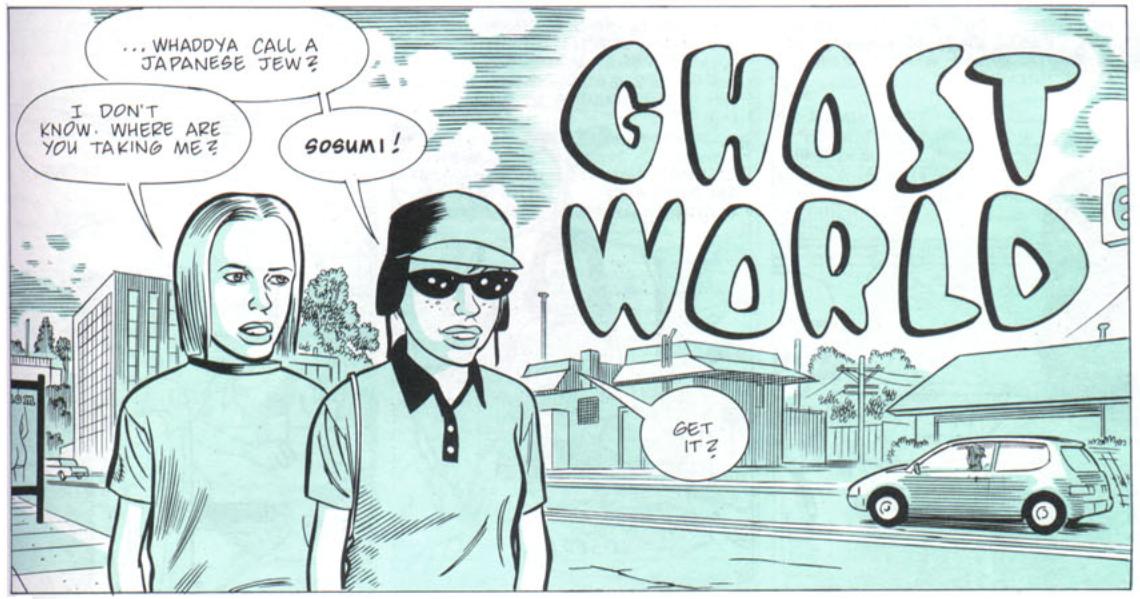While doing some background research for another question about Daniel Clowes' Ghost World, I stumbled upon this article, which mentions the following exchange:
. . . I don't get this. The first thing a search yields for "sosumi" is the Apple notification sound, and some further search shows that "sosumi" == "so sue me", and I don't understand how that is relevant either. There is also the Japanese restaurant in Jerusalem, and a records label.
Neither of those substituted in the joke make it funny, which makes me conclude that I'm missing some context, especially with Enid (probably) being Jewish, and Daniel Clowes comes from a Jewish family as well (and Enid Coleslaw being an anagram of Daniel Clowes, and all that).
So what is the joke?
